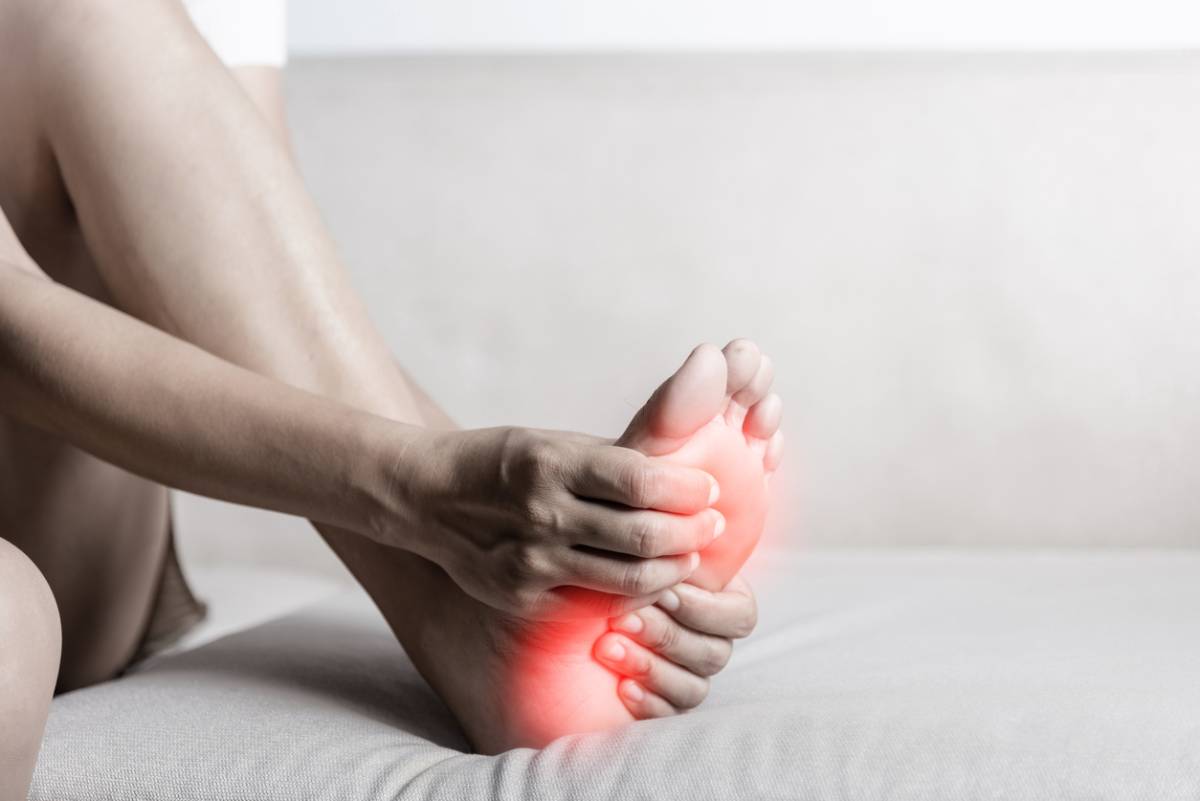Foot pain is something that many people brush off as normal and temporary, especially after a long day of standing or walking. However, if you experience persistent heel pain, it may be a sign of a more serious problem, which a board-certified podiatrist can help you address. Persistent heel pain is one of the early warning signs of plantar fasciitis, a common cause of heel pain in adults. Understanding these signs is crucial to preventing long-term damage and avoiding months of chronic pain.
Early Signs of Plantar Fasciitis
Plantar fascia is a thick band of tissue that runs along the bottom of your foot from your heel to your toes. This tissue supports the arch of your foot. It also absorbs shock every time you walk, run, or jump. Plantar fasciitis occurs when the plantar fascia becomes inflamed or strained.
Although plantar fasciitis is common among athletes, it is also common among people who spend a lot of time on their feet, especially those with flat feet, high arches, or those who wear improper footwear.
Just like any health-related problem, recognizing the early symptoms makes a lot of difference. Here are the signs you should watch out for.
Morning Heel Pain
Do you feel any sharp heel pain when you first step out of bed in the morning? That is the hallmark symptom of plantar fasciitis. The plantar fascia tightens and shortens while you sleep. When you stand up, the sudden stretching of the tissue can cause burning or stabbing pain. The pain or discomfort usually becomes less as you use your feet, but it can return after sitting or standing for long periods of time.
Pain After Long Periods of Inactivity
Another red flag is heel pain after long periods of sitting or standing. This is caused by the fascia tightening while you are at rest and being stretched when you move again.
Pain that Worsens After Exercise
Flare-ups are usually experienced after exercise or physical activity. There may be no problem during a run or workout, but afterwards, you may experience soreness or throbbing.
Tenderness or Swelling in the Heel
Try pressing your heel near the arch or at the bottom of your feet. If it feels tender, it could be a sign of early inflammation. Some people may also experience slight swelling or warmth in the affected area.
Stiffness or Tightness in the Arch
If your arch or heel feels so tight that it is difficult for you to flex your foot upward, then that may be a warning sign. Your heels may also feel unusually stiff in the morning, or there may be a feeling of “walking on pebbles”.
Discomfort When Climbing the Stairs or Standing on Toes
Pain when pushing off your toes or climbing the stairs may be caused by a strain on the plantar fascia. It may feel like a dull ache at first, but it can worsen with more stress.
What Causes Plantar Fasciitis?
Preventing flare-ups requires understanding the triggers. Common triggers include:
- Wearing unsupported shoes or walking barefoot on hard surfaces
- Sudden increase in physical activity or intensity
- Obesity or excess weight
- Occupations that require being on your feet for long hours
- Flat feet, high arches, abnormal gait
Early Treatment and Prevention Tips
Management of Plantar Fasciitis can be done with practical home remedies and a change in lifestyle.
Rest and Reduce Activity
Do not overuse your feet. Try to rest and give them time to recover, and avoid running or standing until the pain subsides.
Stretch Regularly
Reduce tension and improve flexibility by doing gentle stretches for your calves, Achilles tendon, and plantar fascia.
Wear Supportive Shoes
Choose shoes that provide good arch support and cushioning. Avoid wearing flip-flops or other footwear that does not have support.
Use Orthotic Inserts
Distribute pressure evenly and support your arches by wearing over-the-counter or custom orthotic inserts.
Apply Ice
Apply ice to your heel for 15-20 minutes at different times of the day to help reduce inflammation.
Maintain a Healthy Weight
Extra pounds put extra unnecessary stress on your feet.
The pain from plantar fasciitis may be mild at the start, but ignoring it can result in long-term discomfort that can disrupt your work and lifestyle. Recognizing plantar fasciitis early can help you get early treatment and prevent bigger problems. If you suspect you have plantar fasciitis, schedule a consultation with us to ensure your feet receive the timely medical attention they need, allowing you to get back on your feet pain-free.
